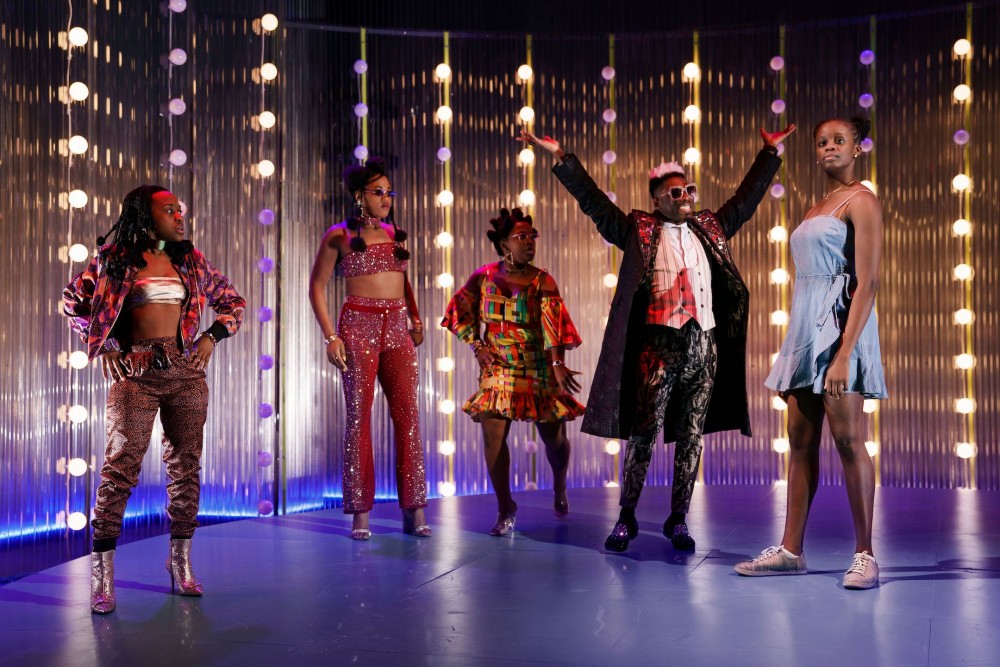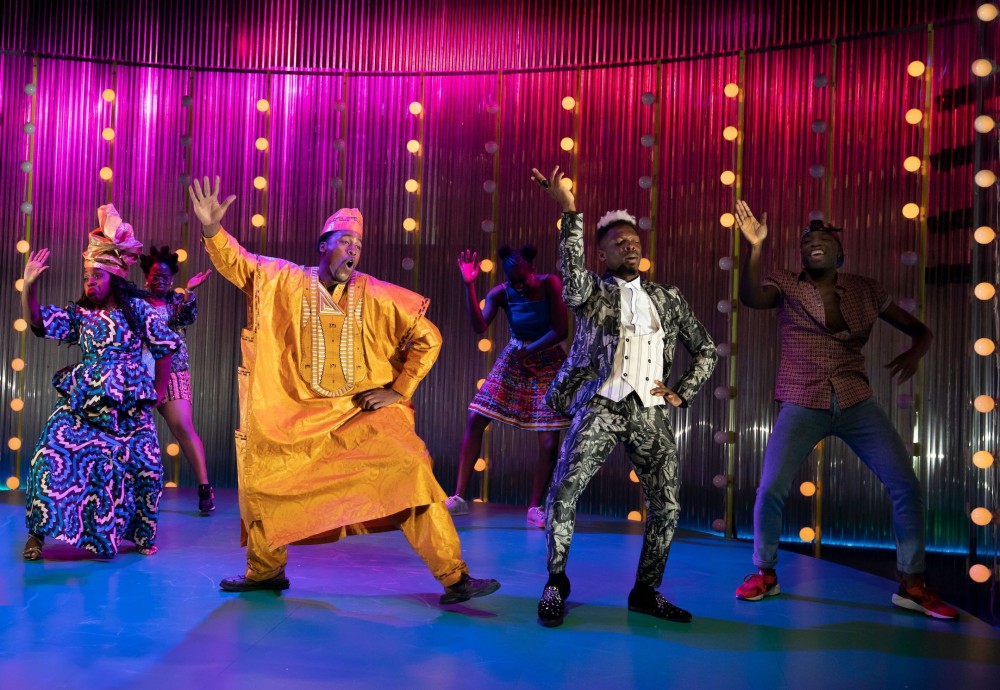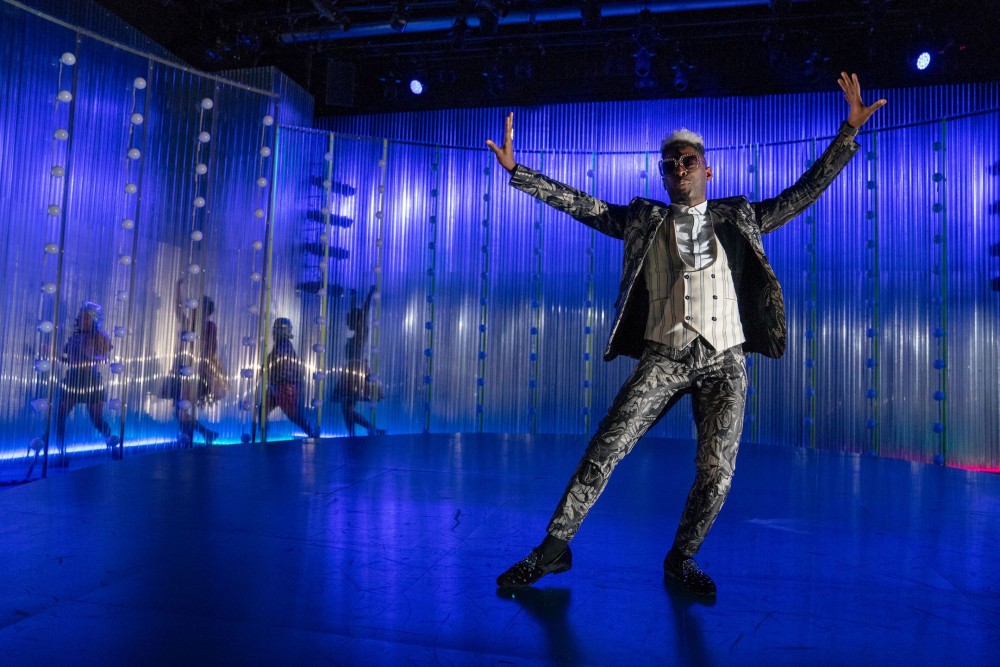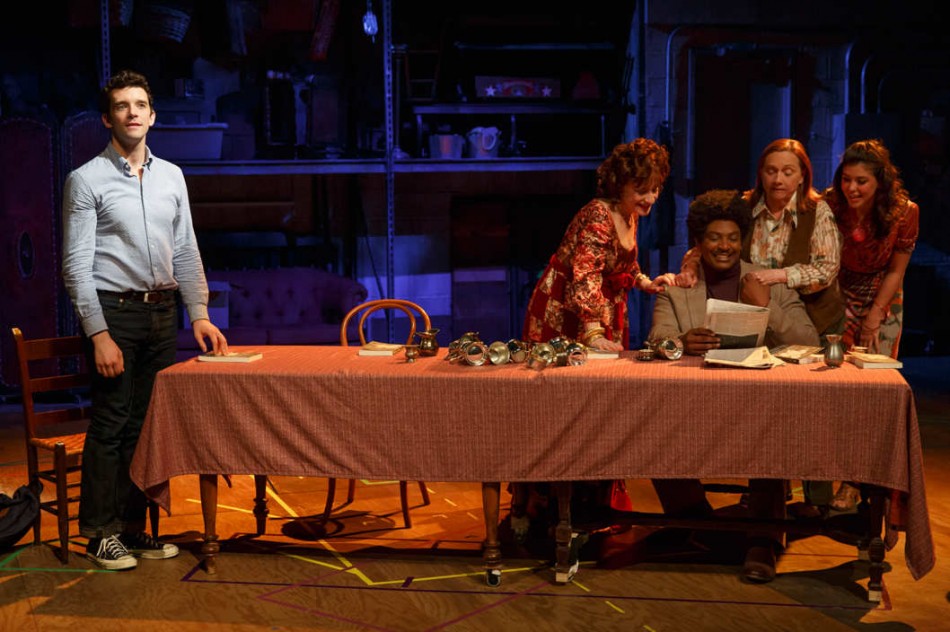by Michael Bracken
Tori Sampson, whose If Pretty Hurts Ugly Must Be a Muhfucka just opened at Playwrights Horizons, knew as a black child that “very rarely” was her complexion considered beautiful. She says she wanted to use a folktale in a contemporary way to examine “why the country had such a hard time aesthetically with Michelle Obama” and to ask what black beauty is.
Pretty, based on a Nigerian fable, presumably with a nod to Beyoncé’s “Pretty Hurts,” takes place in Africa, and all its characters are black. It deals with beauty, but the blackness or non-blackness of the beauty is really not the issue. Sampson has chosen to take on the larger, unwieldy construct of Beauty itself. She looks at how it makes us feel and what it causes us to do. She doesn’t examine how we define it.
Louisa Thompson’s set has Vegas written all over it, yet it’s rather simple. That simplicity makes it adaptable to the show’s various venues. The stage floor is silvery gray, with a large disc that doesn’t move but serves as a platform, with lights and shiny strips of silver metallic fabric beside and behind it.
We begin outside the main narrative, in beauty pageant mode. It’s not an actual pageant but it resembles one, as four girls are on display – the star on one side of the stage, and three non-stars on the other. The group of three is shepherded by Chorus (Rotimi Agbabiaka), a glitzy emcee wearing rhinestone sunglasses. He introduces the star, Akim (Níkẹ Uche Kadri), whose story follows.
Akim is the prettiest girl in the village. No one disputes that. Her overprotective parents keep her under lock and key. Her perspective is skewed: she laments the heavy burden of beauty and thinks the ugly are lucky since they don’t have to bear it. She yearns to go out into the world but is stuck in the confines of her parents’ home.
Then one day her mother allows her to go to the store to buy rice. She’s ecstatic. On her way she meets Massassi (Antoinette Crowe-Legacy), Adama (Mirirai Sithole), and Kaya (Phumzile Sitole). They have three distinct body types. Massassi’s build is not unlike Akim’s, tall and full-figured. Adama is short and slight, and Kaya is a feisty fireplug. They are jealous of Akim and become even more so when Kasim (Leland Fowler), whom Massassi considers her beau, turns on his megawatt smile to flirt with Akim. Out of audience earshot, the girls conspire against her.
First they befriend her and then convince her to come with them to the celebration of the season of yams, which her parents have forbidden her to attend. On the way back, they have to make an offering of food to cross a river, but Akim has none. No one told her she should bring one. The other girls abandon her, but then Adama runs back to share her food. Massassi and Kaya are furious and murder both Akim and Adama.
The two victims find themselves in a sort of ritual presided over by two men in elegantly shimmering, wide-skirted black cassocks (costume design by Dede Ayite) and plain white masks. Soon the stage is filled with people in cassocks as it seems Akim and Adama are being welcomed to the other side. But it turns out it’s not that simple.
Director Leah C. Gardiner takes advantage of the entire theater space at Playwrights Horizons, as actors venture out into the audience, running across the theater and up and down the aisles. But If Pretty Hurts Ugly Must Be a Muhfucka ultimately disappoints. What could have been a provocative exploration fails to zero in on anything meaningful. Its examination of beauty is barely skin deep.
Photos: Joan Marcus
Through March 31 at the Mainstage Theater at Playwrights Horizons, 416 West 42nd
Street. www.phnyc.org. 1 hour 50 minutes with no intermission.





















